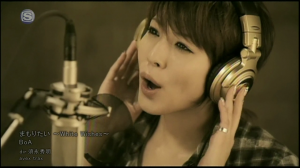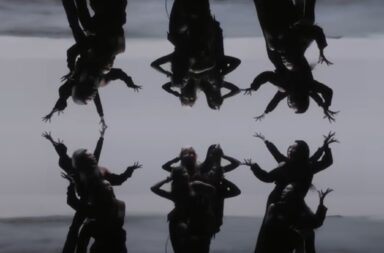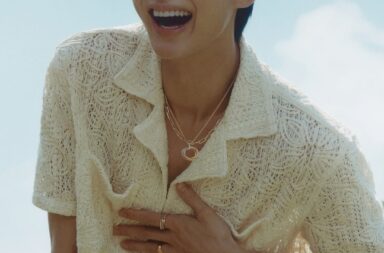 In the world of K-pop, ballads are a pretty polarizing subject. On the one hand, these ballads are perfect outlets for our precious idols to showcase their vocal prowess, with the minimal instrumentals allowing vocals to be the center of attention. Moreover, when done right, these ballads can be spectacular pieces of work, full of emotion and heart and demonstrative of an idol’s emoting. These exceptional works end up being big gold stars on an idol or group’s discography and often end up being fan favorites as well, for these works show an idol in their best light.
In the world of K-pop, ballads are a pretty polarizing subject. On the one hand, these ballads are perfect outlets for our precious idols to showcase their vocal prowess, with the minimal instrumentals allowing vocals to be the center of attention. Moreover, when done right, these ballads can be spectacular pieces of work, full of emotion and heart and demonstrative of an idol’s emoting. These exceptional works end up being big gold stars on an idol or group’s discography and often end up being fan favorites as well, for these works show an idol in their best light.
However, as we are all unfortunately aware, not all K-pop ballads end up being that spectacular. Rather, contrary to its purpose, ballads in K-pop turn out to be more like filler. Ballads in K-pop often end up formulaic and uninspired, being lazy tracks added to idols’ albums for the sole purpose of filling up space. A ballad is traditionally meant to be sincere and emotional. However, K-pop idols — or more specifically, their companies — continually churn out lackluster ballads as if they were impersonal dance tracks, and consequently, these ballads end up boring, distant, and devoid of the heart or personality that makes a stellar ballad that great in the first place. With similar, repetitive progression and instrumentals being repeated from group to group, it’s absolutely no wonder why a K-pop fan would have a jaded outlook on ballads. Even if the idols singing the ballad were amazing vocalists — which is admittedly also becoming a rarity in K-pop — the commercialized ballads these idols produce often never truly sound complete, for they lack genuineness or sincerity.
 Still, despite the negative reputation ballads have taken in the K-pop scene, as mentioned above, not all K-pop ballads turn out commercialized or impersonal. There are truly some wonderful ballad gems out there and even groups like 2AM or Davichi who specialize in them. Moreover, in other areas of Korean music largely separate from the idol-saturated K-pop industry, artists such as ALi, Gummy, and Lyn simply thrive in their unabashed glory. However, due to the workings of the K-pop industry in particular, it’s becoming increasingly difficult for these ballads or ballad groups to get promoted. As a result, to promote these ballads, these groups turn to the more ballad-friendly Japanese music industry, a growing trend in today’s batch of idols.
Still, despite the negative reputation ballads have taken in the K-pop scene, as mentioned above, not all K-pop ballads turn out commercialized or impersonal. There are truly some wonderful ballad gems out there and even groups like 2AM or Davichi who specialize in them. Moreover, in other areas of Korean music largely separate from the idol-saturated K-pop industry, artists such as ALi, Gummy, and Lyn simply thrive in their unabashed glory. However, due to the workings of the K-pop industry in particular, it’s becoming increasingly difficult for these ballads or ballad groups to get promoted. As a result, to promote these ballads, these groups turn to the more ballad-friendly Japanese music industry, a growing trend in today’s batch of idols.
As my fellow writer Mark said in his review of SHINee‘s Japanese ballad effort, “1000 Years, Always By Your Side,” promoting a song like “1000 Years, Always By Your Side” would be a “foolhardy” attempt to do in their native Korea. But why is this so? Why are idols so discouraged from promoting ballads in the K-pop industry?
Well, if anything is to blame, it is the demographics. The fanbase of K-pop idols in Korea is predominantly teens or young adults, a demographic that would typically prefer catchy, mindless dance tracks over sentimental and thought-provoking ballads. Members of the minority adult fanbase would be more likely to turn to more professional and renowned ballad singers like the previously mentioned ALi or K.Will over our less revered idols if they’re itching for a ballad.
 So in the very fickle K-pop industry, it is in a group’s best interest to go with what would be the most attention-grabbing genre for their demographic. And while even dance tracks have been sounding pretty repetitive these days, it is admittedly much easier to attract the attention of young adults through these songs. The catchy tunes, energetic performances, and easy opportunities for fanservice would simply be more appealing for a fan in this demographic compared to the more quieter, subtler ballads that take a while longer to get into.
So in the very fickle K-pop industry, it is in a group’s best interest to go with what would be the most attention-grabbing genre for their demographic. And while even dance tracks have been sounding pretty repetitive these days, it is admittedly much easier to attract the attention of young adults through these songs. The catchy tunes, energetic performances, and easy opportunities for fanservice would simply be more appealing for a fan in this demographic compared to the more quieter, subtler ballads that take a while longer to get into.
Previous attempts of promoting ballads or ballad-like singles in the K-pop market have turned out largely unsuccessful. For example, there’s IU whose debut was the chilling and powerful ballad “Mia.” Quite infamously, her debut was met with indifference and passiveness despite its clear quality, and it wasn’t until IU turned to a cuter, more mainstream sound that she was able to achieve minimal success through “Boo.” Moreover, IU’s second attempt at promoting a ballad as a single with “The Story Only I Didn’t Know” met decent success considering IU’s stable popularity at that point. However, the single was often overlooked in favor for IU’s signature “Good Day,” a much more upbeat track. While it may be a testament on how strongly IU’s cuter, more youthful image influences her career, it’s still fairly telling how musically and vocally superior songs such as “Mia” get overlooked for songs with a more mainstream sound such as “Good Day” or “Boo.”
 Also, there is also U-Kiss who promoted the lovely ballad “0330.” While the glorious track is often credited for the beginning U-Kiss’s considerable improvement, much like the case with “The Story Only I Didn’t Know,” the track is often overlooked compared to its successor, the much more upbeat “Neverland.” The only group to consistently and successfully release ballads as singles were DBSK, who were — as many Cassies would protest — a very special case, and even then most of DBSK’s ballad singles were released in Japanese.
Also, there is also U-Kiss who promoted the lovely ballad “0330.” While the glorious track is often credited for the beginning U-Kiss’s considerable improvement, much like the case with “The Story Only I Didn’t Know,” the track is often overlooked compared to its successor, the much more upbeat “Neverland.” The only group to consistently and successfully release ballads as singles were DBSK, who were — as many Cassies would protest — a very special case, and even then most of DBSK’s ballad singles were released in Japanese.
In contrast, in the Japanese music industry, idols are much more free to explore the ballad genre. This is partly due to Japan’s more diverse music tastes and partly due to the older demographic K-pop groups attract. Unlike in the K-pop industry where groups have to chase trends in order to stay relevant or popular, groups venturing in Japan are more able to explore genres a bit and experiment as artists. This leads many groups to deviate from their signature sound at home, exploring genres such as rock, R&B, electronica, and of course ballads. Due to less restriction and less conventional sounds, Japanese ballads from these K-pop groups end up much more intriguing and consistent to listen to, thus advocating more K-pop idols to try their hand at ballads in Japan.
 Likewise, the Japanese demographic is also crucial in allowing K-pop idols to explore ballads in foreign soil. The demographic of K-pop groups, specifically K-pop boy groups, tend to be dominantly older women rather than teens, individuals who are more likely to enjoy the romantic and sentimental natures of most ballads.
Likewise, the Japanese demographic is also crucial in allowing K-pop idols to explore ballads in foreign soil. The demographic of K-pop groups, specifically K-pop boy groups, tend to be dominantly older women rather than teens, individuals who are more likely to enjoy the romantic and sentimental natures of most ballads.
And many K-pop groups surely take advantage of this more ballad-friendly environment when promoting in Japan. First of all, there were Hallyu pioneers BoA and DBSK, whose Japanese discographies are completely loaded with a multitude of glorious ballads. But come recent times, more groups including SHINee (“1000 Years, Always By Your Side”) SNSD (“Time Machine” and “All My Love is For You”), U-Kiss (“A Shared Dream”), and Secret (“So Much for Goodbye”) have been exploring the ballad genre through their Japanese activities rather than their Korean activities.
While I wouldn’t mind some quality ballads back in Korea, this movement is definitely one I have no complaints on. These Japanese ballads are usually at a higher quality than these groups’ Korean ballads, featuring new sounds and immense vocal growth, improvements that I surely support.
Readers, what are your thoughts on Korean and Japanese ballads respectively? Leave your observations below!
(SM Entertainment, AVEX Network, EMIMusicJapan, KpopSecretFanClub)


